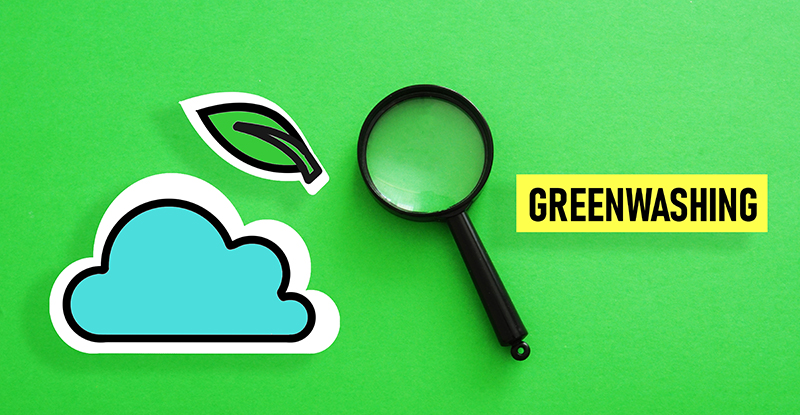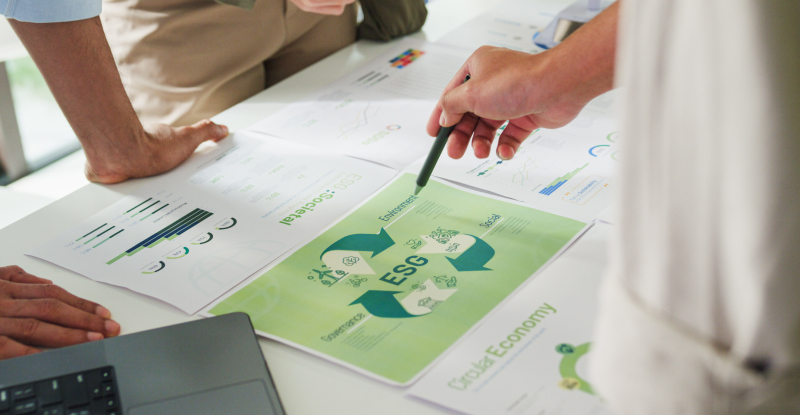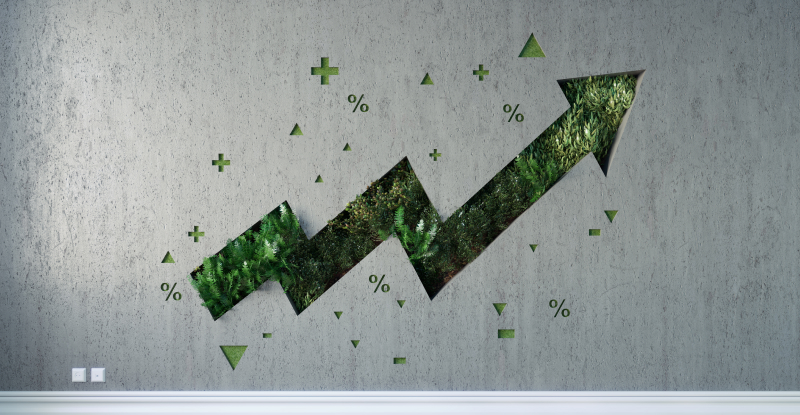
In this podcast episode, CPABC's president and CEO Lori Mathison, FCPA, FCGA, LLB, discusses greenwashing and ESG fraud with Marshal Wong, CPA, CA, a senior manager with KPMG's GVA forensic practice and a member of the firm's national forensic ESG team. Part of our Coffee Chats with CPABC podcast series.
Pressure to make headway on ESG initiatives is increasing, as is the stakeholder push for companies to be regarded as environmentally responsible, progressive, and equitable. In this context, some organizations may be influenced to engage in greenwashing or ESG fraud.
For those who are new to the topic, greenwashing involves allegations of fraud related to ESG matters; allegations of greenwashing are often made in the context of deceptive marketing practices. ESG fraud, however, relates to fraudulent practices involving the reporting or disclosure of ESG factors and could involve breaches of laws, regulations, internal policies, or other codes of conduct that could apply to sustainability data. And while greenwashing is often targeted at the consumer, ESG fraud is often targeted at investors or others who might be using ESG disclosure information.
Recently I spoke with Marshal Wong, CPA, CA, a senior manager with KPMG's GVA forensic practice and a member of the firm's national forensic ESG team. He shared his insight on greenwashing and ESG fraud and some of the ways that CPAs can safeguard against them.
Could you expand a bit on what greenwashing is, and why it happens?
Marshal: Greenwashing involves making statements about products or services in a way that makes them appear to benefit the environment, when maybe they're not making much of an environmental impact. It’s a spectrum – there are potentially inaccurate, to misleading, to deliberately fraudulent statements.
One example is the option at hotels to not exchange your towels every day. You’re told it's to conserve energy and protect the environment, but laundry from hotels is probably done at industrial washing factories that have fixed costs for energy, detergent, and water. So do a few towels a day make that much of an environmental difference or is it about the motive to reduce financial costs if the hotel can send fewer towels to get washed?
That's a milder example, but there are many more – bottled drinks and waste, sustainable fabric, the natural and organic industry, carbon offsetting, eco-friendly packaging. Many claims that are made in their marketing are probably unprovable.
However, you can see why there's a desire or a motive to engage in greenwashing – there is a demand for greener products. Consumers want to feel that they're making a difference for the environment. And businesses are in the enterprise of making money, so you can see why they are making these claims.
In your experience, what will happen if a company is exposed for having engaged in greenwashing
Marshal: The two biggest impacts are reputational and financial. Greenwashing is a marketing tool – it's all about the reputation of the company, so if the organization is found to be engaging in greenwashing, their reputation will take a hit. From that flows lost sales and the cost of rebuilding reputation. There can also be related fines, depending on the regulator and what kind of greenwashing has occurred.
A recent example was a manufacturer of single-use coffee pods. They were called out for misleading buyers to believe that the pods were recyclable in blue bins. This wasn't completely true in every province – it is in BC, but the pods have to be washed out and clean to be recycled. If they aren’t, then you've contaminated your blue bin and it probably goes into the landfill, which was where the pods were going if they hadn't been recycled. The Competition Bureau learned about this and the company had to pay a $3 million fine. This produces a reputational hit and potentially an impact on similar companies because it can cast a pall over the entire industry.
There's also been an increase in litigation risk. KPMG did a survey last year on the future of litigation and 69 of the respondents who are lawyers said they're expecting ESG-related litigation for securities and other class actions to increase in the coming years.
What can the CPA do to help safeguard against greenwashing?
Marshal: As CPAs, we understand reporting and analysis and we have our standards of ethical conduct, so it's our role to try to stand up to potential greenwashing. Let's say you're responsible for preparing an annual report and you find it is making environmental claims and claims about their impact. In this context, exercise your professional skepticism. Ask yourself, am I comfortable with these claims? What would people read into this? Where's the data to prove these claims? If somebody asked me to prove these claims, could I do it, or at least find the information to do it within the organization as I know it?
CPAs understand data, data analysis, and reporting and those are the skills that we can bring to the table, along with our ability to put in internal controls to prevent greenwashing.
What should CPAs as preparers of information watch out for to alert them to greenwashing from a data perspective?
Marshal: As CPAs, we know the businesses and how information is captured. We should ask ourselves if the organization is making a claim, where is the data coming from to make it? Do we even capture it? And if we do, then do some digging and ask yourself, does this make sense? Is this reasonable based on what I understand of the business? If the claim is based on third-party information, then where is this third party getting the information from and can we trust them?
We can also use our analysis skills by looking between time periods. Has there been a huge change? Does that make sense? Have there been changes in the way that calculations have been done between periods or a change in the methodology?
Finally, it’s taking a skeptical lens and making sure that the claim is provable. Is it obviously true, or on the other end of the spectrum? Is it so vague that it’s unprovable? In cases like this, it could be time for us to challenge the claim.
From a regulatory and standards perspective, what's being done about greenwashing?
Marshal: It's a work in progress, but the International Sustainability Standards Board released two standards at the end of June 2023. They're the sustainability-related financial information and climate-related disclosures and they should be in effect for fiscal period starting January 1st, 2024 for organizations required to implement them.
The Canadian Securities Associations and the Securities and Exchange Commission (SEC) have proposals for climate disclosures in the works. SEC should have some rules finalized this year. Canada has the proposed national instrument NI 51-07, which covers disclosure of climate-related matters, but it has yet to be finalized. These standards are quite high level and don’t directly address the greenwashing issue, but they are going in the right direction.
Are there other types of ESG washing out there?
Marshal: There's a variety – one is bluewashing, which is ocean focused and entails questions like, is fish farming really better than sustainable fishing? There's also ‘social’ washing, including pinkwashing, which relates to support of the LGBTQ+ communities.
Organizations are saying that they support these communities, but are they really protecting these individuals from discrimination and harassment on a consistent basis? Or does support just happen once a year, for example by taking part in a Pride parade? In a similar vein, there is purple washing which relates to gender equality, brownwashing which relates to support for the BIPOC communities, and redwashing which relates to support for Indigenous people. Essentially, is the organization walking the talk as opposed to using their support as a marketing tool?
Turning to ESG fraud, what are the key risk areas or scenarios that can lead organizations to commit ESG fraud?
Marshal: ESG fraud occurs when the organization is actually saying something or doing something that is against rules or regulations. And whenever we look at fraud, we tend to think of the fraud triangle or the fraud diamond depending on which version you use.
The first side of the triangle is motivation, or pressure. Is there motivation to commit the fraud? For example, are there public promises that the company has made, like saying they be carbon-neutral by 2030? Or are the pressures from outside forces such as carbon taxation?
Then there's opportunity, for example, the opportunity to fudge the statements. You can make metrics so unclear that the organization can say anything and it will make a favorable impression. Or even if the metrics are clear, maybe the organizations doesn’t have good controls or processes in place to capture the data to make fully truthful statements.
The last side of the triangle is rationalization. People who commit fraud will need to rationalize it in order to tell a falsehood. Maybe they're saying to themselves, ‘The numbers aren't 100% right, but it's in the right direction.’
The fraud diamond adds a fourth side, which is the capability – the individual must be able to commit the fraud. So for ESG fraud, I would see it as people that are in this oversight and reporting roles and people with access to data and inputting and managing it.
Overall, our environment and society are complex systems, so there aren’t simple answers when it comes to greenwashing and ESG fraud. It all comes back to having a critical mindset and trying not to let other people's and your own biases influence your judgment.
*The views and opinions expressed in this article and podcast are those of the interviewee and do not necessarily reflect the views or positions of KPMG or any other entities they represent.
Lori Mathison, FCPA, FCGA, LLB is the president and CEO for the Chartered Professional Accountants of British Columbia (CPABC).



